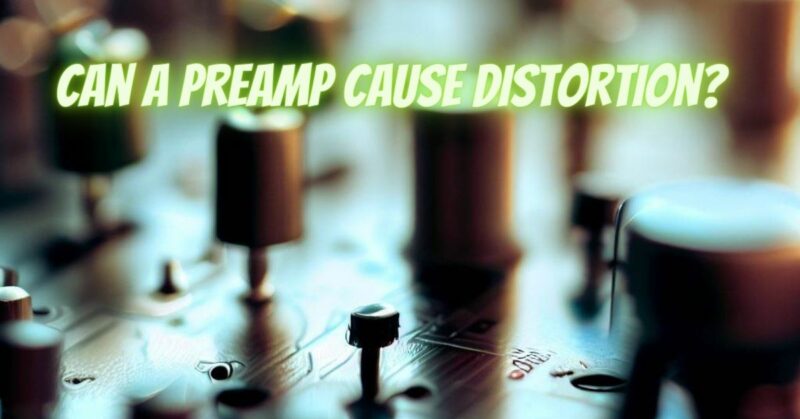A preamp is an electronic device that boosts the signal from an audio source, such as a microphone or turntable. It can also add EQ and other effects to the signal. While preamps are generally not considered to be a source of distortion, there are some cases where they can cause it.
How can a preamp cause distortion?
There are a few ways that a preamp can cause distortion. One way is if the preamp is overloaded. This can happen if the input signal is too strong, or if the preamp’s gain is set too high. When a preamp is overloaded, it can clip the signal, which causes it to become distorted.
Another way that a preamp can cause distortion is if it has poor quality components. Low-quality components can introduce noise and other artifacts into the signal, which can cause it to become distorted.
How to prevent preamp distortion
There are a few things you can do to prevent preamp distortion. First, make sure that the input signal to the preamp is not too strong. You can do this by using a dedicated input attenuator or by adjusting the gain on the preamp itself.
Second, make sure that the preamp has high-quality components. This will help to ensure that the signal is not degraded by noise or other artifacts.
Finally, you can use a high-quality power source for the preamp. This will help to ensure that the preamp is not susceptible to noise or other interference.
Conclusion
While preamps are generally not considered to be a source of distortion, there are some cases where they can cause it. Overloading the preamp or using low-quality components can introduce noise and other artifacts into the signal, which can cause it to become distorted. By following the tips above, you can help to prevent preamp distortion and ensure that your audio signal is clean and clear.


